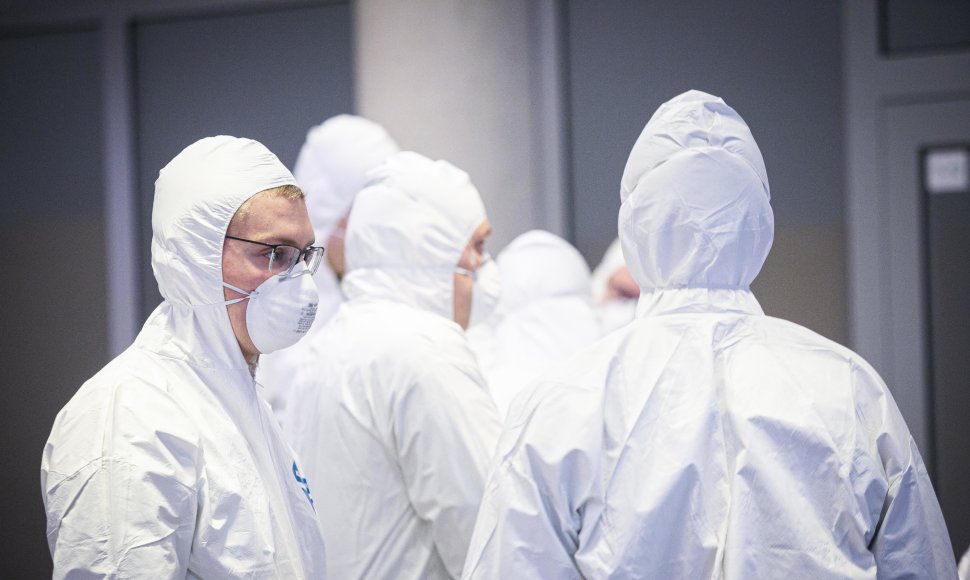“With the coronavirus beginning to spread across the European continent, Lithuanians no longer feel safe. They fear that the virus could reach their surrounding and impact their health. With concern growing, people are taking to preventative actions – ranging from more frequent washing of hands and strengthening their immune systems to stocking up on food produce and avoiding mass events. We performed the opinion poll on February 26-27, prior to the first registered case of the coronavirus in Lithuania, thus it is likely that the recently confirmed case will only increase the ranks of those panicking,” KOG Institute project lead Eglė Šedbaraitė commented.
According to the survey, almost 30% of the country’s residents feel very high concern over the virus (rating their concern 8-10 on a scale of 10). The most concerned are those aged 45-54 (40%). Among younger individuals, aged 25-34, there are far fewer concerned – 19%.
Preventative measures
Every fifth respondent of the KOG Institute’s survey says that they are already preparing for a potential coronavirus outbreak in Lithuania. Most (81%) of them say they have begun washing their hands more frequently, half say they avoid locations where numerous people gather and are trying to strengthen their immunity.
A quarter of those taking up preventative measures also say that they have stocked up on essential long-lasting food products, medical face masks and extra hygiene items. A sixth have cancelled planned trips, no longer travel by public transport. Seeking to avoid unnecessary contacts, some citizens have also chosen to more frequently purchase goods online.
Every second citizen would remain at home
With the coronavirus reaching Lithuania, 7 of 10 respondents say they will first of all avoid locations of mass gathering and stores, will more frequently wash their hands. Also, a large part (50%) say that if possible, they would seek to not leave home and take steps to strengthen their immune system (46%) and would also not touch their face with their hands (44%).
A third of respondents also say that they would stock up on long lasting food products and every fourth respondent plans to wear a medical face mask in public.
Most respondents (78%) believe that if a family contracts the coronavirus, nearby residents or neighbours would call relevant institutions, asking for the infected family to be isolated and their environs disinfected. Half of respondents would choose to not leave their homes. A small part of respondents (13%) specified that residents would protest, seeking for the infected family to be taken away. This is more frequently believed by youth up to 24 years old (29%).
Dubious state crisis management preparedness
The study performed by the KOG Institute showed how respondents rated on average information releases on how to guard from the coronavirus or how to act when a family member is infected (respectively the averages were 3.5 and 3.3 out of 5). A fifth of respondents say that they find information on protection completely lacking, while 27% - what to do if a case occurs in their surroundings. Youth under the age of 24 find information most lacking (3.0 and 2.8 respectively), while the oldest respondents felt the most positive about the information.
Most (52%) of respondents doubt in Lithuanian institutions’ preparedness to contain a potential coronavirus outbreak in Lithuania (preparedness rated at 1 or 2 out of 5). These doubts can be seen equally across all social groups.
The survey was performed by the KOG Institute. 500 respondents aged 16-64 were interviewed during it. The survey was performed online on February 26-27.












